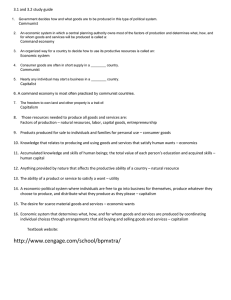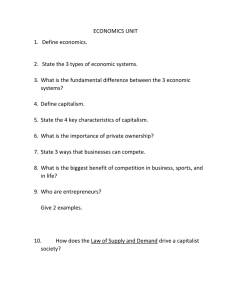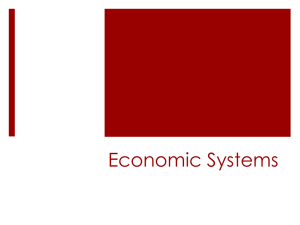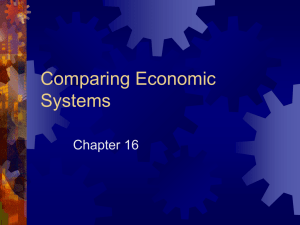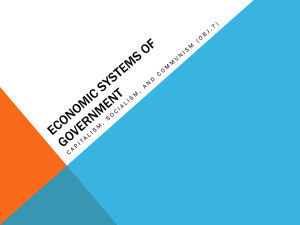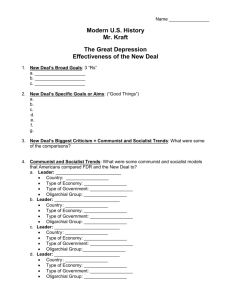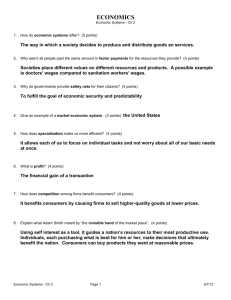4 - Holy Family University
advertisement
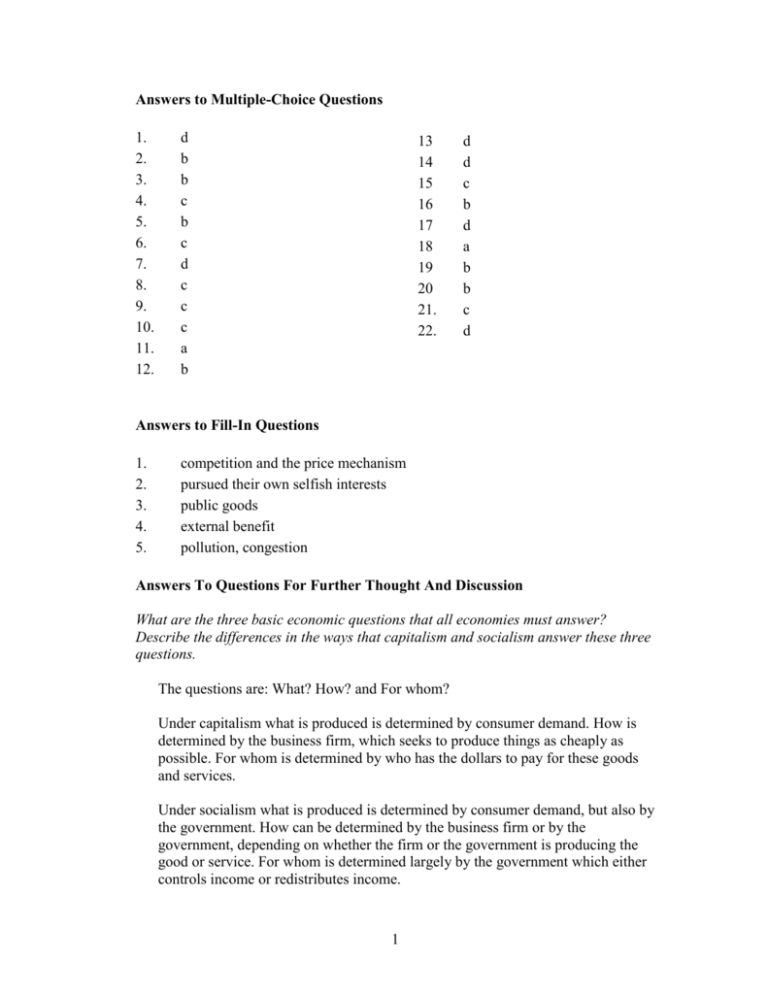
Answers to Multiple-Choice Questions 1. 2. 3. 4. 5. 6. 7. 8. 9. 10. 11. 12. d b b c b c d c c c a b 13 14 15 16 17 18 19 20 21. 22. d d c b d a b b c d Answers to Fill-In Questions 1. 2. 3. 4. 5. competition and the price mechanism pursued their own selfish interests public goods external benefit pollution, congestion Answers To Questions For Further Thought And Discussion What are the three basic economic questions that all economies must answer? Describe the differences in the ways that capitalism and socialism answer these three questions. The questions are: What? How? and For whom? Under capitalism what is produced is determined by consumer demand. How is determined by the business firm, which seeks to produce things as cheaply as possible. For whom is determined by who has the dollars to pay for these goods and services. Under socialism what is produced is determined by consumer demand, but also by the government. How can be determined by the business firm or by the government, depending on whether the firm or the government is producing the good or service. For whom is determined largely by the government which either controls income or redistributes income. 1 What was Adam Smith’s invisible hand, and what economic function did it serve? The invisible hand was the profit motive which led the entrepreneur to produce goods and services. Although the entrepreneur had no intention of promoting the public interest, his pursuit of profits led him to do just that by producing goods and services that people needed. What are the two basic classes of market failure? What would be an example of each? The two basic classes of market failure are externalities and public goods. Examples of externalities are pollution, congestion, sand acid rain. Examples of public goods include the defense provided by the military, police and fire protection, and streets. What are the consequences of overspecialization? Give an example of a job that is overspecialized. Overspecialization can lead to boredom and alienation. Telemarketers, elevator operators, and assembly line workers have overspecialized jobs. For many years Americans referred to the people’s Republic of China as “Communist China.” Why would that label be misleading today? China was certainly a communist society well into the 1970’s, before individual business firms and privately owned farms were allowed. The nation lived by the communist slogan, “From each according to his ability, to each according to his needs.” By 1984 the Communist Party’s Central Committee proclaimed a new slogan, “More pay for more work; less pay for less work.” Today the engine of economic growth is private enterprise. A price system flourishes and while an oppressive political dictatorship remains in power, the economy is becoming increasingly capitalistic. Explain why you would prefer to live in a socialist or a capitalist country. I’ll give my own reasons, which may differ from yours. I would prefer a capitalist country because I would have a good chance to become rich, because the average standard of living may be very high, and because people are extended a great deal of economic freedom. On the other hand, in a socialist country perhaps no one is poor, incomes are more evenly distributed, and the government provides a wide array of services including free college tuition, childcare, and medical insurance. 2
